Search
Remove Ads
Advertisement
Search Results
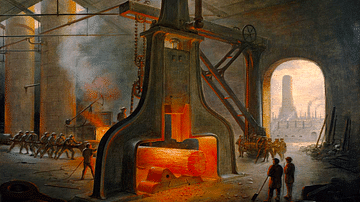
Definition
Steam Hammer
The steam hammer was developed in 1839 by the Scotsman James Nasmyth (also spelt Naysmyth, 1808-1890). Coming in a wide range of dimensions, the steam-powered machine was used to forge and shape very large pieces of metal for industrial use...
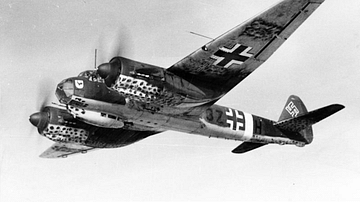
Definition
Junkers Ju 88
The Junkers Ju 88 was a two-engined medium bomber plane used by the German Air Force (Luftwaffe) throughout the Second World War (1939-45). Ju 88s were involved in the Battle of Britain and London Blitz as bombers, but this versatile aircraft...
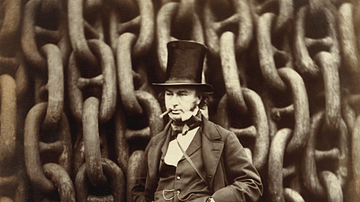
Definition
Isambard Kingdom Brunel
Isambard Kingdom Brunel (1806-1859) was a British engineer and a key figure of the British Industrial Revolution (1760-1840). Brunel masterminded the Great Western Railway from London to Bristol, designed and built innovative giant steamships...

Definition
Hawker Hurricane
The Hawker Hurricane was a single-seat fighter plane, Britain's first monoplane, which fought in the Battle of Britain in the summer of 1940. Slower but more numerous than the Supermarine Spitfire, the Hurricane was used by the Royal Air...
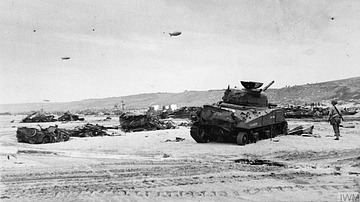
Definition
Omaha Beach
Omaha Beach was one of two beaches attacked by the US armed forces on D-Day, 6 June 1944. Strong German defences on the bluff overlooking the beach made this area the most difficult of the Normandy landings, but by the end of the day, the...

Article
The Steam Engine in the British Industrial Revolution
Steam power was one of the most significant developments of the Industrial Revolution (1760-1840) in Britain. First invented as a pump in the 1690s, a host of inventors tweaked designs and tinkered with machinery until an efficient and powerful...

Article
Food & Drink in the Elizabethan Era
Food and drink in the Elizabethan era was remarkably diverse with much more meat and many more varieties of it being eaten by those who could afford it than is the case today. Storage of food was still a problem and so fresh produce was grown...
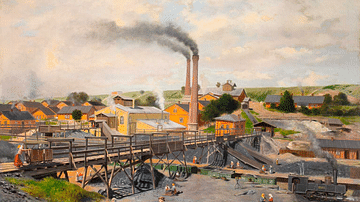
Article
The Impact of the British Industrial Revolution
The consequences of the British Industrial Revolution (1760-1840) were many, varied, and long-lasting. Working life in rural and urban settings was changed forever by the inventions of new machines, the spread of factories, and the decline...

Article
The Invasion of Poland in 1939
The leader of Nazi Germany Adolf Hitler (1889-1945) ordered the invasion of Poland on 1 September 1939. Hitler's refusal to withdraw brought a declaration of war from Britain and France on 3 September, and so began the Second World War (1939-45...
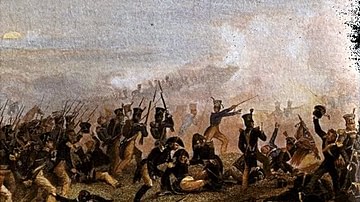
Article
Battle of Lundy's Lane
The Battle of Lundy's Lane (25 July 1814) was one of the bloodiest battles of the War of 1812. Fought near the location of present-day Niagara Falls, it saw a US army under Jacob Brown clash with a British force under Gordon Drummond. Although...